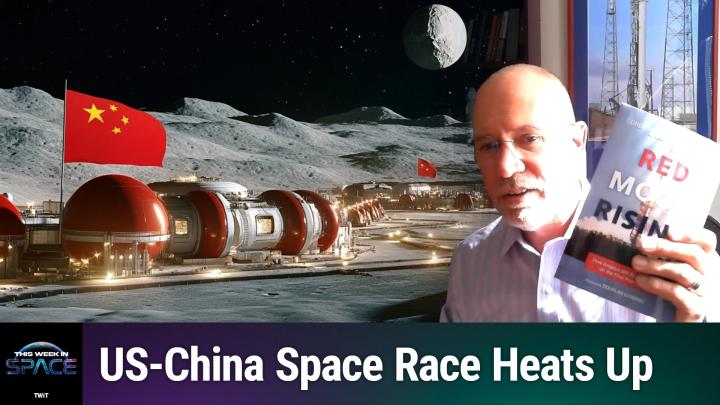Artemis, Starship, and the US-China Space Race: A Conversation with Greg Autry
AI created, human edited.
In the latest episode of This Week in Space, hosts Rod Pyle and Tariq Malik dive deep into the current state of the US space program with special guest Greg Autry, author of "Red Moon Rising." Autry, a former NASA transition team member and current Associate Provost for Space Commercialization and Strategy at the University of Central Florida, shares his unique insights on the challenges and opportunities facing America's space endeavors.
According to Autry, human spaceflight in the US is experiencing both the best and worst of times. While there is bipartisan support for the Artemis program and returning to the Moon, the initiative is plagued by delays and cost overruns. Autry points to a lack of top-level political leadership and a sense of urgency as key factors hindering Artemis' progress, emphasizing the need for a strong leader willing to provide direction, funding, and accountability.
The conversation also delves into the growing competition with China in the space domain. Autry suggests that this rivalry could serve as a catalyst for the US to accelerate its efforts, much like the Cold War space race of the 1960s. However, he notes that the public may not be as motivated by this competition as they were during the Apollo era. Nonetheless, Autry stresses the importance of the US securing lunar resources and establishing a presence on the Moon before China.
Looking to the future, Autry highlights the critical role artificial intelligence (AI) will play in space operations, particularly on the Moon and Mars. He envisions AI enabling more flexible and capable spacecraft, revolutionizing space exploration. However, he also emphasizes the need for the US to rebuild its aerospace manufacturing and production workforce to execute ambitious space goals, citing a lack of STEM education and hands-on skills as critical challenges.
Autry's vision for the next decade includes a diverse on-orbit ecosystem with compatible, specialized vehicles, regular Moon missions laying the groundwork for resource extraction, and an influential space tourism industry. He advocates for a dual-track lunar architecture, incorporating both SpaceX's Starship and a more conventional system for redundancy. He acknowledges Starship's potential while cautioning against its complexity and potential failure points.
The discussion also touches upon Autry's role as Associate Provost for Space Commercialization and Strategy at the University of Central Florida, where he is working to establish new academic programs aimed at training the next generation of the commercial space workforce.
Be sure to listen to the full episode of This Week in Space to hear more of Greg Autry's fascinating insights, including his thoughts on his book "Red Moon Rising," the Artemis program's struggles, and the recent successful Starship launch and catch by SpaceX.
